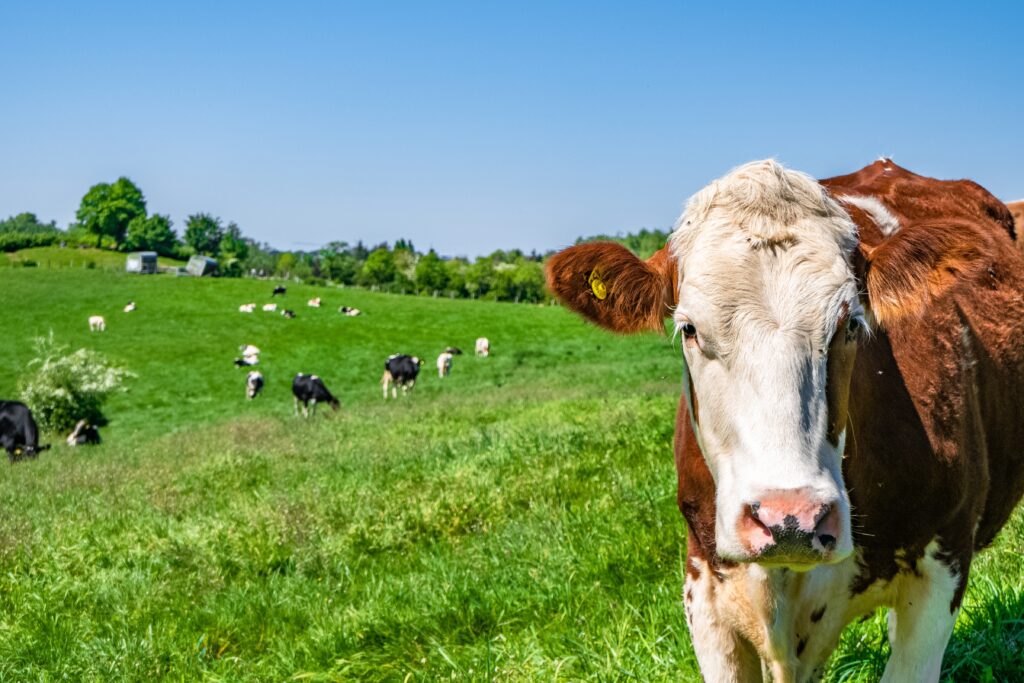The foundation of a productive and healthy farming operation is livestock nutrition. For farmers and ranchers, maintaining the welfare of their animals is essential to sustainable agriculture and not merely a moral issue. In this blog, we examine calcium carbonate, a crucial component that improves livestock nutrition. You’ll learn more about the importance of calcium in livestock nutrition and its distinct advantages as we examine how this crucial mineral supports the health and vigor of different species of animals.
The Significance of Calcium in Livestock Nutrition
In cattle nutrition, calcium, commonly referred to as the “building block of life,” is of utmost importance. This crucial mineral is crucial for preserving animals’ health and vitality. Calcium is essential for skeletal growth, supporting bone strength and structure. Beyond its structural importance, it helps with blood clotting, enzyme activity, and muscle function, ensuring that the numerous physiological processes in animals run smoothly.
Calcium has numerous advantages for different kinds of animals. It is essential for sturdy eggshells in chicken production, aiding hens in their efforts to lay eggs. Calcium supports strong bone development and milk production in dairy cattle. It is essential for overall mobility and hoof strength in equines. Calcium contributes to the strength of bones and the health of muscles in swine as well. As we go further into this blog, we’ll reveal the complex benefits calcium provides to various aspects of the animal kingdom, illuminating its crucial function in cattle nutrition.
Types of Calcium Carbonate in Animal Feed
Not all calcium carbonate is made equal when it comes to increasing cattle nutrition. Animal feed comes in many different forms, with natural and synthetic sources dominating. Natural calcium carbonate is a more environmentally friendly alternative because it is made from materials like oyster shells and limestone. Contrarily, artificial calcium carbonate is produced using a chemical procedure. Understanding the differences between the two is essential for efficiently adjusting cattle nutrition, as both kinds offer advantages.
Sustainability and Responsible Sourcing
Numerous real-world success stories show how calcium carbonate helps to promote ethical and sustainable animal production. The health and production of cattle have significantly improved on farms and in agricultural businesses around the world thanks to calcium carbonate supplementation. For instance, “GreenPastures Ranch,” a sustainable cattle farm, employs naturally occurring calcium carbonate that is supplied locally to cut down on shipping costs and improve the health of the cattle. In line with customer needs for animal products that are produced ethically and sustainably, “HarvestPro Nutrients,” a prominent animal nutrition firm, adds sustainably derived calcium carbonate into their products. These examples show how calcium carbonate is essential for encouraging ethical and responsible methods of animal care.
Market Trends and Future Prospects
Calcium carbonate is still gaining ground in the competitive animal feed market. The demand for this crucial vitamin in livestock nutrition is rising, according to market trends right now. Calcium carbonate is being added to feed formulations at a higher rate by feed makers as a result of rising understanding of the crucial function calcium plays in animal health and productivity. The desire for wholesome and sustainable animal products among the world’s expanding population is a major factor behind this spike in demand.
The use of calcium carbonate in cattle nutrition appears to have a bright future. Feed formulation innovations, such as precise nutrient balance and customized additives, are expected to completely transform the market. Furthermore, improvements in ethical and sustainable procurement methods are anticipated to strengthen calcium carbonate’s support of environmentally friendly and moral animal production. You’ll learn useful information about how calcium carbonate is positioned to continue improving animal feed and nutrition in the years to come as we examine these patterns and future prospects.
Conclusion
In conclusion, calcium carbonate is an essential part of animal nutrition since it ensures the wellbeing and production of animals. Its significance extends to numerous livestock species, promoting bone health and general wellbeing. In light of the growing demand for sustainability and ethics in agriculture, it is critical to underline the importance of responsible calcium carbonate supplementation as we come to a conclusion. We can all work together to improve the health of animals, the sustainability of farming, and the ecology by promoting ethical behaviors.
Image by wirestock via https://www.freepik.com/

